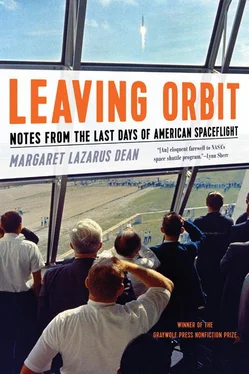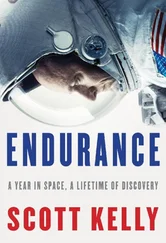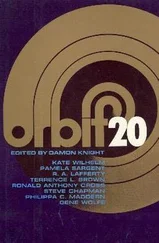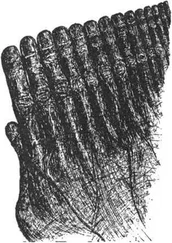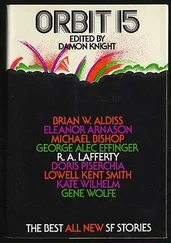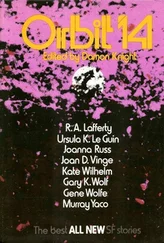I picked up your book last Monday night. I was first drawn to your book by the photo on the cover. I grew up on Merritt Island, and I was 6 years old when Challenger happened, and my dad worked (and still works) at the Kennedy Space Center. I also work out there now, and so when I saw the book, I instinctively decided to give it a closer look.
Mistakenly, I assumed at first that it was a true story about a girl who grew up on the Space Coast around that era, and since I also grew up under those circumstances, I immediately purchased the book, looking forward to see how similar this girl’s childhood perspectives on that day and time would be to my own.
I was 25 pages into it, before I realized that the book was a work of fiction. I am a bonehead.
However, I decided to continue reading, and I finished the book 5 days later. Interestingly, I finished it at work while I was on break, sitting literally 10 feet away from the huge left wing of the Space Shuttle Atlantis, as it was being worked on in the VAB for the upcoming mission.
Anyway, I just wanted to say that I still did find your book enjoyable. Since I was 6 when Challenger occurred, and the character in your book was 13 (and a girl), I’m afraid I can’t offer you relevant feedback and say that my experiences and hers during that era were completely similar. What we did have in common was an obsession with everything having to do with shuttle, and feelings of confusion when the Challenger accident occurred. Since my father (in 1986) worked with the shuttle main engines, his job was not affected by the accident as severely as Dolores’ father was in the book.
Once again, thanks for the good read. It seems you did significant research, and your descriptions of the Space Center in particular are fairly accurate (with the exception of two things, 1.) It would be impossible for a child to sneak past security at KSC, and 2.) Nobody is allowed to bring non-employees into the Vehicle Assembly Building, ESPECIALLY while the Orbiter is hanging from the crane above the stack during Orbiter/ET Mate).
Thank you very much. Omar Izquierdo
For a first-time author, hearing from a complete stranger the week my book came out, a stranger who walked into a bookstore of his own accord and chose my book from among all the other books, then actually read it, felt like a miracle. But when I got to the second paragraph about how Omar grew up near the Kennedy Space Center himself, and works there now, I felt a sinking dread. All the facts I must have gotten wrong suddenly seemed to glow like badly buried radioactive waste. This reader, this Omar Izquierdo, would expose my errors, would lead the charge against me. After all, I had taken his hometown, his childhood, and his life’s work and made them into a backdrop for a story I, an outsider, had made up.
Soon after that initial exchange, I went on Facebook to create an identity for my book’s main character (authors were encouraged to do this during the brief period after Facebook became ubiquitous and before Facebook’s fan pages were introduced). When I went looking for Facebook groups my character might join, I came across one called “If You Oppose NASA in Any Way I Will Punch You in the Face.” Perfect for Dolores. I clicked on it, and the first name I saw among the existing members was Omar Izquierdo. So I friended him.
A Facebook friendship evolves either more quickly or more slowly than a face-to-face one; mine with Omar evolved quickly. We are both on Facebook multiple times a day, both click Like often on each other’s postings, especially ones that involve our shared interest in spaceflight. And his space-related posts are to die for: images of Discovery being prepared for launch, interiors of restricted spaces like the Vehicle Assembly Building and the Orbiter Processing Facility, or the often-dramatic weather at the Cape. But I’ve found you can also learn a lot about a person by what he finds funny, by his comments on everyday happenings, and I came to feel that I knew Omar well through his posts even if I’d never been in the same room with him.
Omar’s father is a mechanical engineer who has worked at Kennedy his entire adult life. He was recruited right out of engineering school in Puerto Rico in 1979, when NASA was gearing up for the first shuttle launch, and was given a choice of whether to go to the Marshall Space Flight Center in Alabama or the Kennedy Space Center in Florida. He chose Kennedy because he had heard that Alabama was more racist. He brought his young wife to Florida, bought a house, put down roots, and Omar and his sister were born here soon after.
Before leaving home, I’d looked back over all the e-mails and Facebook messages Omar and I have sent each other, and I’d reread that first e-mail in which one of the errors in my book he points out is a scene in which an employee brings an outsider inside the VAB. Neither of us could have imagined when he wrote those words that three years later he would be taking me inside the VAB himself.
Back in my hotel room I’ve left the stack of books I brought with me to Florida. Tom Wolfe’s The Right Stuff , Lipartito and Butler’s History of the Kennedy Space Center , William E. Burrows’s This New Ocean , Diane Vaughan’s The Challenger Launch Decision , Oriana Fallaci’s If the Sun Dies , Michael Collins’s Carrying the Fire , and Norman Mailer’s Of a Fire on the Moon.
Each of these books offers different layers of the infinitely layered story—Wolfe’s bombastic lionizing of the Mercury astronauts; Burrows’s thorough tracing of the currents of history across three nations; Vaughan’s tireless unpacking of the seemingly benign decisions that would doom two shuttles. When I was researching my Challenger novel, I’d thought at first that once I understood the outlines of the history of American spaceflight, I would be able to stop reading about it and get back to writing. But I found I loved reading multiple accounts of the same event—say, the first glimpse of the lunar surface on Apollo 8 in 1968, or the first space shuttle launch in 1981. When the point of view changes, details emerge and disappear, meanings shift, emotions transmute themselves. The very import of the event can change. My research was turning into something more like an obsession, and even once my Challenger novel was published, I kept reading, wanting to be able to grasp a historical era that in many ways seemed better than my own.
The books that mean the most to me are the firsthand accounts, the people who grapple with what they have seen and experienced, and by doing so take on the emotional meanings of spaceflight. Michael Collins, who went to the moon with Neil Armstrong and Buzz Aldrin, is also a first-rate prose stylist with a natural feel for detail and a light touch with humor; his book sounds a lot like what you would expect if E. B. White had qualified as an astronaut and flown to the moon. Tom Wolfe undertook to grasp the courage of the astronauts and uncovered a brotherhood that is both unprecedented and ageless. Oriana Fallaci was an Italian journalist who traveled to Houston, Huntsville, and the Cape at the height of the excitement for Apollo but before the success of the first moon landing. She met astronauts, rocket engineers, and NASA managers engaged in the as-yet-uncertain project of beating the Russians to the moon, and she questioned the project constantly—will they get to the moon by the deadline, and if so what will that accomplish?—while also admiring the adventure and the adventurers. When she meets Neil Armstrong, for example, he is just another astronaut in a large group, described in terms of his resemblance to John Glenn, not as the first man on the moon. When she meets Deke Slayton, a chance remark reveals that he was one of the pilots responsible for a bombing raid on Fallaci’s home city of Florence during World War II, a raid that injured her and destroyed her family home. If nothing else, this episode should remind us of how very recent the war had been, and the fact that Oriana and Deke became great friends anyway is an example of the way spaceflight brings people together. I envy Fallaci most in the scenes where she flirts her way through the astronaut corps, one by one, drinking martinis with them in the motel bars of the Space Coast, smoking like a chimney and eliciting from von Braun eloquent observations about the moon project. It can’t be a coincidence that the sixties era of creative nonfiction overlaps so perfectly with the heroic era of American spaceflight, the big egotistical voices turning journalism inside out at the same time the innovators in Houston and Huntsville and the Cape were redefining what machines were capable of, what human beings were capable of.
Читать дальше
